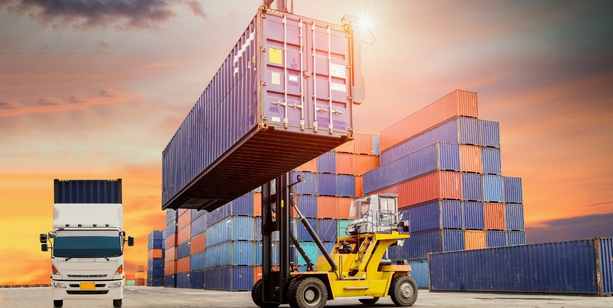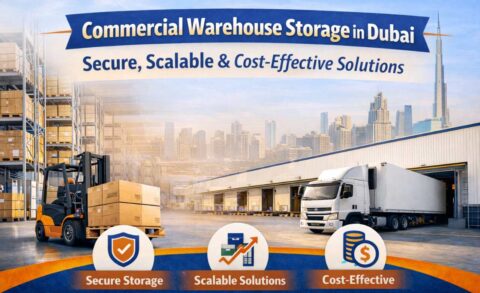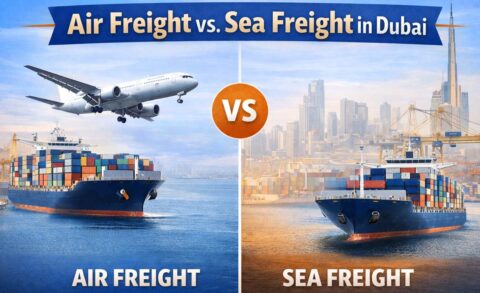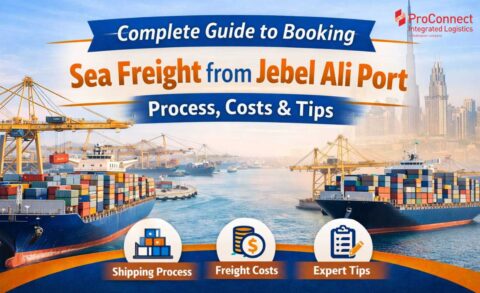What Is Logistics Outsourcing and How Does It Benefit Businesses?
Logistics and supply chain management is the backbone of modern business. It ensures goods, materials, and services move efficiently from one point to another. When handled well, logistics reduces costs, improves delivery times, and enhances customer satisfaction.
In today’s competitive world, strong logistics is no longer optional, it is essential for growth.
What is Logistics?
Logistics is the process of planning, controlling, and managing how goods move from origin to destination. It covers transportation, storage, packaging, and order fulfilment.
Logistics is:
- The network that connects suppliers, businesses, and customers.
- A mix of activities like warehousing, transportation, and inventory tracking.
- A key driver of customer satisfaction and operational efficiency.
Logistics is not:
- Just the supply chain (it is one part of the wider supply chain).
- A last-minute task – it needs planning and coordination.
- Something every business must do alone – many rely on logistics partners.

What is Logistics Outsourcing?
Logistics outsourcing is when a business partners with external providers to manage parts or all of its logistics operations. This can include freight forwarding, warehousing, distribution, customs clearance, and last-mile delivery.
This is often called the “7 Rs of Logistics.” Businesses that achieve these seven-rights gain efficiency, save money, and deliver better customer experiences.
Logistics vs Supply Chain Management
Though closely related, logistics and supply chain management are not the same.
- Supply chain management looks at the entire flow – sourcing raw materials, production, and distribution.
- Logistics is a part of this flow, focusing on transportation, warehousing, and order fulfillment.
Think of supply chain as the big picture, while logistics is the operational engine that keeps things moving.
Types of Logistics Outsourcing Management
Logistics management covers different categories, each with a specific role in moving goods and services. Understanding these types helps businesses design smoother operations.
Inbound Logistics
Inbound logistics manages the flow of raw materials, supplies, and parts into a business. It focuses on sourcing, transportation, and storage before production begins. Well-planned inbound logistics reduces delays and ensures smooth production.
Outbound Logistics
Outbound logistics deals with moving finished goods from warehouses to customers. It includes storage, packing, transportation, and last-mile delivery. Effective outbound logistics leads to faster deliveries and higher customer satisfaction.
Reverse Logistics
Reverse logistics handles returns, replacements, recycling, or disposal of goods. In e-commerce, it plays a big role in managing customer returns. A strong reverse logistics system reduces losses and builds trust with customers.
Third-Party Logistics (3PL)
3PL providers take over logistics tasks like warehousing, transportation, and fulfillment. By outsourcing to 3PLs, businesses save costs, scale faster, and use expert infrastructure.
Freight forwarding
Freight forwarding manages international cargo by air, sea, or land, covering shipment booking, customs clearance, and documentation to ensure goods move smoothly from origin to destination.
Functions of Logistics
Logistics is more than moving goods. It involves many activities that work together to keep the supply chain efficient. These are the core functions:
Order Processing
Order processing is the first step after a customer makes a purchase. It includes confirming the order, checking stock availability, and preparing documents. Smooth order processing reduces errors and ensures quick delivery.
Product & Material Handling
This function manages how goods are loaded, unloaded, and moved inside warehouses. Proper handling keeps products safe and reduces damage.
Inventory Control
Inventory control ensures stock levels are accurate and balanced. Too much stock increases storage costs, while too little causes delays. Effective control helps meet customer demand without waste.
Storage & Warehousing
Warehousing stores goods until they are needed. It includes organizing stock, maintaining safety, and designing layouts for faster picking and packing. A well-managed warehouse improves delivery speed and accuracy.
Transportation & Delivery Management
Transportation is the backbone of logistics. It involves planning routes, selecting carriers, and ensuring goods reach customers on time. Good delivery management lowers costs and improves customer satisfaction.
Importance of Logistics Outsourcing
Logistics outsourcing is vital for any business that wants to stay competitive. It impacts costs, customer experience, and growth. Here are the main reasons why it matters:
- Ensuring Customer Satisfaction: Fast and accurate deliveries build trust. Reliable logistics keeps customers happy and loyal.
- Cost Reduction & Efficiency: Optimised routes, proper storage, and inventory control reduce waste and save money.
- Competitive Advantage: Businesses with strong logistics can offer faster shipping and better service than competitors.
- Risk Mitigation & Resilience: A well-structured system helps manage delays, shortages, or unexpected disruptions.
- Sustainability & Economic Growth: Eco-friendly logistics lowers costs and reduces carbon footprint, supporting long-term growth.
Key Components of Logistics Outsourcing
Logistics has several core components that make the entire system work smoothly.
- Inventory Planning: Ensures the right stock is available when needed, avoiding shortages or excess.
- Procurement: Involves sourcing raw materials or goods from suppliers at the right cost and quality.
- Warehousing: Covers storage, organization, and safety of goods until they are ready for dispatch.
- Delivery Fulfilment: Manages the process from order placement to the final delivery to customers.
The 7 Rs of Logistics
The 7 Rs explain the key goal of logistics to help deliver the right product in the right way. They act as a guiding framework for planning and evaluating logistics performance.
| R | Meaning |
|---|---|
| Right Product | Delivering the exact product the customer ordered. |
| Right Customer | Ensuring the goods reach the correct person or business. |
| Right Quantity | Supplying the exact amount needed, avoiding shortage or excess. |
| Right Condition | Making sure products arrive without damage. |
| Right Place | Delivering to the correct location as promised. |
| Right Time | Ensuring timely delivery, neither too late nor too early. |
| Right Price | Keeping delivery cost-effective for both business and customer. |
Challenges in Logistics Outsourcing:
Running logistics smoothly is not always easy. Businesses face several common challenges that affect cost, speed, and customer service.
- Supply Chain Complexity
With global trade and many suppliers involved, coordinating every step becomes difficult. This often causes delays and confusion in the flow of goods.
- High Costs
Fuel, labour, and storage costs keep rising, making logistics more expensive. If not managed well, these costs cut into business profits.
- Market Demands
Customers expect faster deliveries with no errors. They also demand real-time tracking for full transparency.
- Lack of Technology/Infrastructure
Many companies still use outdated systems or have poor facilities. This reduces efficiency and prevents them from competing effectively.
Benefits of Logistics Outsourcing
Strong logistics is more than just moving goods from one place to another. It directly affects how smoothly a business runs, how much it spends, and how satisfied customers feel. With efficient logistics, companies gain an edge in both cost savings and long-term growth.
- Improved Customer Experience: Accurate and timely deliveries keep customers happy and loyal.
- Reduced Operating Costs: Optimised routes and storage lower expenses and improve margins.
- Flexibility & Scalability: Systems adapt to demand changes, supporting growth.
- Better Delivery Productivity: Fewer errors and faster processes increase output.
How to Optimise Your Logistics Strategy
A strong logistics strategy helps reduce costs, speed up deliveries, and improve customer satisfaction. By focusing on the right areas and using smart tools, businesses can build a system that supports long-term growth.
| Area | Focus |
|---|---|
| Inventory Management | Real-time tracking, forecasting, auto-reorders |
| Warehousing | Organised layouts, automation, efficient picking |
| Transportation | Route optimisation, cost control, timely delivery |
| Packaging | Lightweight, eco-friendly, damage protection |
| Delivery | Flexible options, improved success rate |
| Right Logistics Partner | Expertise, scalability, risk reduction |
How ProConnect Can Help with Logistics Outsourcing
Outsourcing logistics is a smart way for businesses to save time, reduce costs, and focus on growth. By working with an experienced partner like ProConnect Integrated Logistics, companies gain access to advanced technology, global networks, and proven expertise.
Here is how we support businesses with logistics outsourcing:
- End-to-End Supply Chain Management – We manage sourcing, international shipping by air, sea, and road, with smooth customs processes and strong expertise across the Middle East.
- Smart Warehousing Solutions – Our 200+ warehouses worldwide offer scalable storage, real-time tracking, and fulfilment services.
- Local Distribution Excellence – Reliable distribution networks ensure your goods reach markets quickly and efficiently.
- Last Mile Delivery – Seamless e-commerce delivery that improves customer satisfaction and brand trust.
- Customs Clearance – Licensed experts handle documentation, tariffs, and compliance, ensuring shipments clear smoothly without costly delays.
Conclusion
Logistics outsourcing is no longer just a support function. It has become a core driver of business success. When inventory, warehousing, transportation, and delivery are managed well, companies can reduce costs, improve efficiency, and keep customers satisfied.
Using modern tools, adopting eco-friendly practices, and working with reliable partners helps businesses stay resilient in a fast-changing world. Strong logistics today lays the foundation for sustainable growth tomorrow.
FAQs – Logistics Outsourcing
What is the role of logistics management?
It ensures goods move from origin to customer in the right way, reducing costs and improving service.
What are the major functions of logistics?
The main functions include order processing, warehousing, transportation, inventory control, and delivery.
Difference between logistics & supply chain management?
The supply chain covers the entire flow from raw materials to final delivery. Logistics focuses on transportation, storage, and fulfillment within that flow.





 APP DOWNLOAD
APP DOWNLOAD